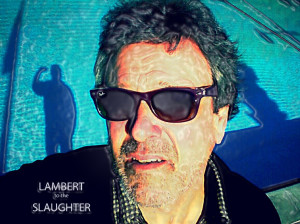 Watching Ken Burns and Lynn Novick’s “The Vietnam War” unleashes a torrent of memories, few of them good. Despite the moral cover offered by the likes of Ronald Reagan a decade after the fall of Saigon, there was never anything “noble” about “the cause”. The mission of Vietnam was ignorant and ignoble and it’s execution begat an apocalyptic disaster.
Watching Ken Burns and Lynn Novick’s “The Vietnam War” unleashes a torrent of memories, few of them good. Despite the moral cover offered by the likes of Ronald Reagan a decade after the fall of Saigon, there was never anything “noble” about “the cause”. The mission of Vietnam was ignorant and ignoble and it’s execution begat an apocalyptic disaster.
People too young to remember the era first hand must have a hard time applying any kind of comparison. At its worst — which it was for nearly 10 years — Vietnam was the equivalent of a Hurricane Harvey/Irma/Maria disaster hitting every week for years in terms of expense, only worse because it was compounded by another 300–500 American deaths each week, with all the grief, rage and polarization that induced. In the midst of it Vietnam felt like a catastrophe without end.
Thinking about it again 50 years later sets the mind off in a dozen directions, most with institutional deceit at their hub.
As a generally credulous teenager in far off, all-white, small town America for half of the Vietnam years, what was etched most into my consciousness, my routine valuations and assessments of American life, was a deep skepticism of authoritarian belief systems. For me (and millions of others) Vietnam was a horrifying example of the steep and frequently cataclysmic effect of blindly submitting to “established order.” By “authoritarian” I mean the subservient end of the process, where “average citizens”, i.e. “the led” embrace and accede to the direction of what passes for our ruling class.
At one point in “The Vietnam War” a field commander gets emotional talking about the world’s greatest fighting men, young Americans who, he says, are great soldiers because they can be trained to follow commands without question, to always do what needs to be done. No one questions the value of such training/indoctrination in a combat situation where Job #1 is staying alive. But that same unquestioning reverence for authority, the willingness to be led anywhere, is also what commits an entire culture — American, Vietnamese, “radical Islamic”, North Korean — to homicidal disasters.
I’m not certain what the essential roots of the authoritarian mindset are. In the film we meet West Pointer Matt Harrison, raised in a military family with an unequivocal alpha father. “Duty” and “honor” were staples of his family psychology. An apex of Americanism. (The film introduces us to Harrison in the company of two other West Point classmates. The cream of young American manhood. The three arrive in Vietnam simultaneously and barely a week later the other two are dead, zipped up and carted away in body bags, after an ambush on a classically absurd “search and destroy” mission.)
Domineering, ethics-shaping fathers are no doubt a powerful influence in the authoritarian makeup. But so to is the group think of immediate culture, that is to say the people you go to school with, do business with and need to count on as compatriots to achieve happiness in life. As the film tells us, through surviving veterans and a precious few of the ruling bureaucrats of the era, “courage” in the early to middle years of Vietnam was defined by skepticism-free, unquestioning acceptance. Doing “your duty.” “Cowardice” was defined by expressing empirical doubt about what Lyndon Johnson, Robert McNamara and all the other (all white, all-male) leadership group was selling.
Only in the late Sixties, with weekly death tolls hitting 200–400 did the general authoritarian impulse abate enough to create a cultural mass sufficient enough that doubters and objectors had protection from blowback from “the silent majority.”
As depressing as it is to relive the emotions of those years, Burns and Novick are fully aware of how this same reptilian, atavistic, authoritarian mentality infects society today.
I often take (negligible) comfort in the high likelihood that credulous group-think is an aspect of our ongoing evolutionary process. Instinctual group-think impulses saved man-apes on the African savanna, neanderthals in northern Europe and fledgling humanoids everywhere from predator attack for millions of years. Independent thinking was a recipe for shunning if not death. It stands to reason we haven’t lost that go-with-group instinct in the blink of the evolutionary eye that we’ve been (sort of) fully conscious.
But evolution has proceeded. We are now a couple important rungs up the ladder of full(er) awareness. In evolutionary math terms the experience of Vietnam, with its catastrophic levels of misguidance and deceit maybe the overall percentage of independent cognition ticked up 5 to 10%.
If we survive our technological infancy, maybe in a few hundred years we’ll reach a tipping point where rational thought is the controlling norm. The hope is that then we’ll understand that the predators we most need to protect ourselves against are the people exploiting our “patriotic” impulses to attack someone else.
